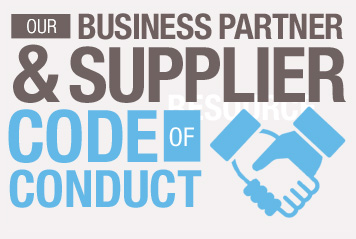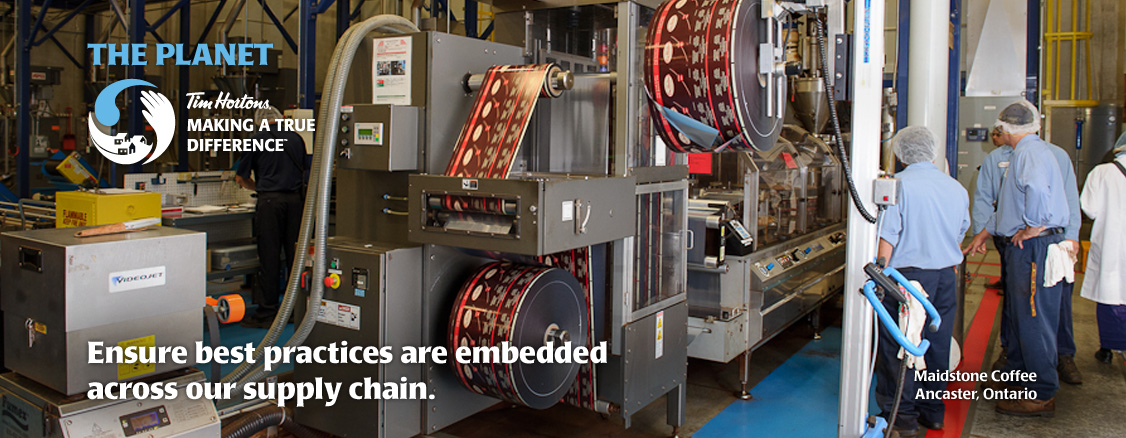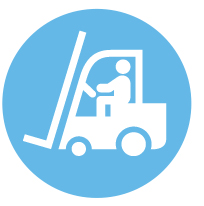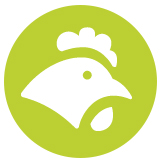Our Initiatives: Supply Chain
Our Supply Chain
Our supply chain is made up of a wide network of suppliers, some of whom provide us with goods that ultimately end up in our restaurants, while others provide us with goods or
services that help us in our day-to-day business operations. We work closely with many suppliers further down our supply chain from which we source the raw ingredients, such as
wheat, oil and sugar, used to make our products. For a high-level overview of our supply chain, please see the
Value Chain
section of this Report.
We manage our supply chain by working closely with our suppliers. For example, every two years, we host a Supplier Symposium where best practices can be shared amongst our
supplier base. We also partner with key suppliers in order to identify and address common industry-wide sustainability challenges. We believe that lasting sustainable supply
chain improvements are best achieved through working together.
For the first time in 2012, our Food, Beverage, Packaging and Equipment Vendors were evaluated on criteria based on sustainability practices, goals, and innovation. We look
forward to further engaging with our suppliers to share best practices, encourage innovation and help to minimize the environmental impacts of our products and equipment.
OUR BUSINESS PARTNER AND SUPPLIER CODE OF CONDUCT
About Our Business Partner and Supplier Code of Conduct
We are committed to sustainable supply chain practices across our business. Our
Business Partner and Supplier Code
of Conduct (BPSCC) is built on the principles of respect, fairness and business ethics with regulatory compliance being a minimum standard to do business with us.
Our BPSCC is based on internationally accepted labour standards including the International Labour Organization’s (ILO) core conventions and the United Nations’ Universal
Declaration of Human Rights. Key areas of focus in the BPSCC include compliance with applicable laws and regulations, conditions of employment, workplace environment, and business
ethics.
We believe that the principles of respect and fairness extend to our relationships with our business partners and suppliers. As a result, compliance with our BPSCC is expected of
all our business partners and suppliers. Failure to substantially comply with our BPSCC is sufficient cause for us to elect to remove a business partner’s or supplier’s approved
status. We also expect that our business partners and suppliers will encourage and promote this BPSCC to their business partners and suppliers that work on Tim Hortons business.
BPSCC Implementation Plan

We began implementing our BPSCC in 2010, placing our initial focus on our Food, Equipment and Packaging business partners and suppliers that we feel represent the largest risk
to our business.
Given the challenges with a wide-scale implementation, in 2011 we revised our BPSCC implementation plan to one that takes a phased and risk-based approach.
In developing this new implementation plan, we first established a cross-functional team made up of individuals from Sustainability and Responsibility, Strategic Sourcing,
Internal Audit and Quality Assurance. We then worked on developing a tool to help us assess supplier risk across our organization. The results of the exercise helped us
prioritize our remaining business partners. In particular, we focused first on those suppliers that provide us with products that ultimately end up in our restaurants
(e.g., food, packaging, equipment, etc.). We are aiming to roll out our BPSCC to all our business partners and suppliers who meet our new risk criteria by the end of 2013.
In addition, all new Tim Hortons suppliers are required to sign our BPSCC as part of our formal selection process.
BPSCC Verification Plan
An important component of our program is verification of compliance with our BPSCC. In 2010, our Internal Audit department developed a verification program that was piloted with a
small number of our key suppliers in 2011. In 2012, we revised our verification program and continued to pilot with suppliers in Canada, the U.S. and internationally. In addition,
we extended our pilot program from Head Office processes to include full plant-level reviews. We will continue to amend our verification program based on the results of our pilot
reviews and will work towards finalizing the verification program in 2013.
1
We consider “Suppliers” as organizations that provide Tim Hortons with goods and services. Our “Business Partners” are organizations with whom we have a unique
business relationship. This may include entities such as retail businesses, non-governmental organizations and charities that may or may not supply goods or services.
COFFEE SOURCING AND VERIFICATION
About the Coffee Supply Chain
We have been sourcing our coffee from the same regions in Central and South America since our Company was founded in 1964. The majority of the coffee we purchase comes from “small holder” farms that tend to be family-run farms with less than five hectares of land. In these regions, the methods used to grow and process coffee are unique and the chain of custody to get the coffee to market is very complex. In some cases, coffee can be traded along its supply chain several times among the producers and processors, resulting in numerous transactions and changes in the custody of the coffee.
The figure below illustrates six key levels in the coffee supply chain that are very important to better understand the verification process. They include: Farmers, Organization, Intermediary, Exporter, Importer, and Roaster.

Our BPSCC Applies to Coffee Suppliers
Our coffee suppliers are considered key suppliers and are included within the scope of our BPSCC. We have implemented our BPSCC down to the exporter level of the coffee supply chain. We are proud to report that 100% of our coffee exporters have signed the BPSCC and many of our exporters have reported that the intermediaries they work with also abide by the BPSCC.
Verification of compliance with our BPSCC is of particular importance in the coffee supply chain. As such, in 2012, in conjunction with Control Union Certifications (a third party certification company), we continued to pilot our BPSCC verification program specific to coffee sourcing. Our verification tool facilitates a detailed review of 14 key areas of focus. These areas include:
- Remuneration;
- Working hours;
- Child labour;
- Forced labour;
- Discrimination and human rights;
- Business ethics (including bribery and corruption, conflicts of interest, and internal codes of conduct);
- Working conditions;
- Health and occupational safety;
- Discipline;
- Association;
- Product quality;
- Traceability;
- Environmental practices; and
- Verifications/certifications.
In 2012, Control Union performed inspections and reviews down to the dry mill level at three suppliers in Colombia. Control Union was given open access to the facilities and relevant documentation. Interviews with employees at every level in the organization were also conducted.
The pilot verification audits revealed strong compliance with our BPSCC. Audit findings at two suppliers were identified by the verifiers: Two findings were documentation issues related to a supplier’s lack of formal internal code of conduct, one finding included an employee working longer hours than allowed by local regulations, and one finding related to a lack of good environmental management practices.
All identified issues were accepted by the organizations and remediation plans put in place. Control Union Certifications has provided us with a
letter of verification.
We will continue to refine and improve our BPSCC coffee sourcing verification program and intend to implement it with our coffee sourcing partners by the end of 2013.
ANIMAL WELFARE AT TIM HORTONS
Animal welfare is an important issue to Tim Hortons and all our stakeholders, including our Restaurant Owners, suppliers, and guests. We consider animal welfare to apply to
all aspects of animal care of the farm animals within our supply chain. While some of our food products are derived from farm animals, we are not directly involved in the
raising, handling, transportation or processing of these animals. We depend on various direct and indirect suppliers – from processors right down to producers, many of which
are family-run farms.
In 2011, we revised and finalized our
Animal Welfare Policy. Our Animal Welfare Policy is aligned
with our Company Values and Sustainability and Responsibility Guiding Principles and sets internal standards in key areas such as regulatory compliance, quality assurance and
auditing, continuous improvement and reporting.
Throughout 2012, we continued to engage with our suppliers, government and industry animal welfare groups to understand current science-based research and best practices.
We toured alternative egg and pork farms, in both Canada and the U.S., and participated in meetings and roundtable discussions that included many farmers and producers.
These activities helped us continuously improve our animal welfare program and update the animal welfare commitments we made in 2012:
- We affirm our call for the pork industry to eliminate gestation stall practices for sows. By 2022, we intend to source pork from suppliers who have made a transition to alternative open housing.
- Further, we will work collaboratively with the pork industry and governments to improve animal welfare and advance standardized approaches and codes resulting in more humane and sustainable open housing systems. At the same time, we will support efforts by the industry to improve traceability systems and verification, which have been a challenge to date.
- We are on track to meet our goal of purchasing at least 10% of our egg products, representing significantly more than 10 million eggs, from more humane, alternative hen housing systems by the end of 2013.
- We plan to progressively increase our commitment over time as additional supply becomes available, while considering future developments in housing systems and hen welfare through scientific research.
- We founded the Tim Hortons Sustainable Food Management Fund at the internationally recognized University of Guelph.
- In 2012 and 2013, University of Guelph researchers are investigating opportunities that produce sustainable outcomes in the best interest of animals and farmers in the protein food chain. The focus for the first year will be on eggs and pork. The research aims to understand the costs of making transitions to alternative hen and sow housing systems, and the viability and timeline of implementation. Traceability of these alternative value chains has already emerged as a major challenge to the industry.
- The researchers are also conducting consumer research on perceptions of animal welfare and sustainability attributes in a hospitality setting.
-
Our North America–wide restaurant industry summit focusing on animal welfare issues, academic research and best practices for the restaurant industry supply chain
is being planned for the fall of 2013. The summit will be facilitated by the University of Guelph.
We believe that current scientific research, advanced technology, and innovative producers have created better, more humane and sustainable housing systems that can improve the quality of animals’ lives. To advance on implementing alternative housing systems, striking a balanced, realistic solution for the farming community and the rest of the supply chain is essential. We fully recognize this will take time.
For more information on our Animal Welfare Program, please visit
timhortons.com.


 We began implementing our BPSCC in 2010, placing our initial focus on our Food, Equipment and Packaging business partners and suppliers that we feel represent the largest risk
to our business.
We began implementing our BPSCC in 2010, placing our initial focus on our Food, Equipment and Packaging business partners and suppliers that we feel represent the largest risk
to our business.


